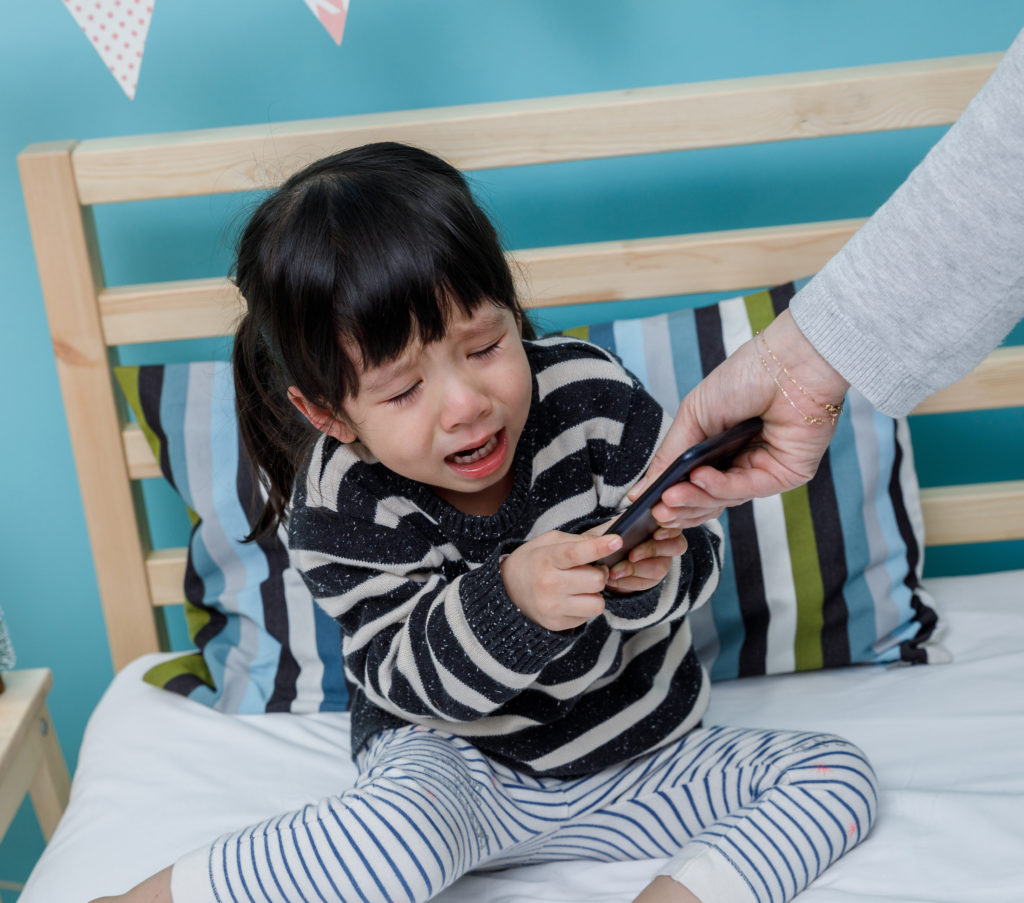Smartphone addiction in children and health problems

As more of our children begin to own smartphones of their own, they may fall prey to smartphone addiction and this can lead to damaging health problems.
The phone and you: who’s in charge of who?
To grow up in the 21st Century means to grow up with a phone, a strong wi-fi connection, and of course, an Instagram account with a cool and witty handle. Our children are no strangers to this – they’re basically digital natives and they spend endless amounts of time on the net. According to a survey done on 2000 families with children, children are spending up to 23 hours a week on their smartphones and other devices.
23 hours – that’s nearly a whole day. Imagine spending almost an entire day staring at a tiny screen. We always trust our children to have control over their own devices, but reality paints a different story. It’s as if their thumbs have a mind of their own and even when they want to stop scrolling vicariously through Instagram, they can’t. They want to view Kylie Jenner’s latest Instagram Story; they want to view a funny cat video; they want to tune into their friend’s Instagram Live. It’s like a Rabbit Hole – once they’re down the black hole, it’s difficult to climb out of it. So really, who has control over who? Does your child really have control over their own smartphone use? This could be a sign of smartphone addiction. What is more alarming is the fact that your kid’s smartphone addiction can lead to alarming mental health problems like depression.
We can hide a lot behind a screen, even our sadness.

A study in BMC psychiatry has demonstrated a positive correlation between smartphone addiction and depression. While the research was done on adults, the affectual relationship between extended smartphone use and depression can be applied to children if they’re not cautious of their own screen time.
It’s not the mere act of staring at a screen that contributes to mental health issues, it’s what is being done when kids use their smartphones. The idea of FOMO (Fear of Missing Out) permeates social media and affects the way kids view and use their smartphones.
It contributes to a Negative Feedback Loop – kids may find themselves disinterested and disengaged in other activities besides using their smartphone. They may feel agitated and anxious if they’re separated from their phone for too long. Research has uncovered that people who experience these symptoms end up using more social media to cope with these negative feelings. What results is a snowball of negative mental health consequences which may trigger feelings of loneliness and contribute to depression.
It is therefore pertinent to keep our child’s screen time in check before it spirals out of control. The planoApp can help you keep your child’s smartphone use in check. As a parent, you can schedule device-free timings on your child’s phone, and block* the use of certain applications that may be taking up your child’s time.
Smartphones are here to stay for a long time. The uptake of smartphones amongst our children will only increase with time. It’s therefore important that we, as parents, help them understand the importance of moderating their smartphone use. While smartphones are not inherently bad, it’s how we use it that matters. Let us help our children prevent smartphone addiction and mitigate any possible damaging health problems associated with it.
Tools Designed for Healthier Eyes
Explore our specifically designed products and services backed by eye health professionals to help keep your children safe online and their eyes healthy.
